Searching for the Dutch-Paris Escape Line
Whose Identity Card?
Travel papers such as the authorization to cross the borders of Haute-Savoie in the last blog would be easy enough to forge if you had the forms and the stamps. Identity cards posed more of a problem. Actually, they were more like identity booklets of heavy paper stock folded in thirds than the laminated cards Americans carry today in the form of driver’s licenses. That’s probably why the police agents in black and white movies are always saying: “your papers please.”
Dutch identity cards were notoriously difficult to forge because of the misplaced zeal of a civil servant who came up with a new way to complicate the cards and presented the idea to the occupying authority. The Belgians, however, had been through a nasty occupation during the First World War and had a deliberately simple, i.e. easily forged, identity card.
Take a good look at the following five identity cards, three French and two Belgian.
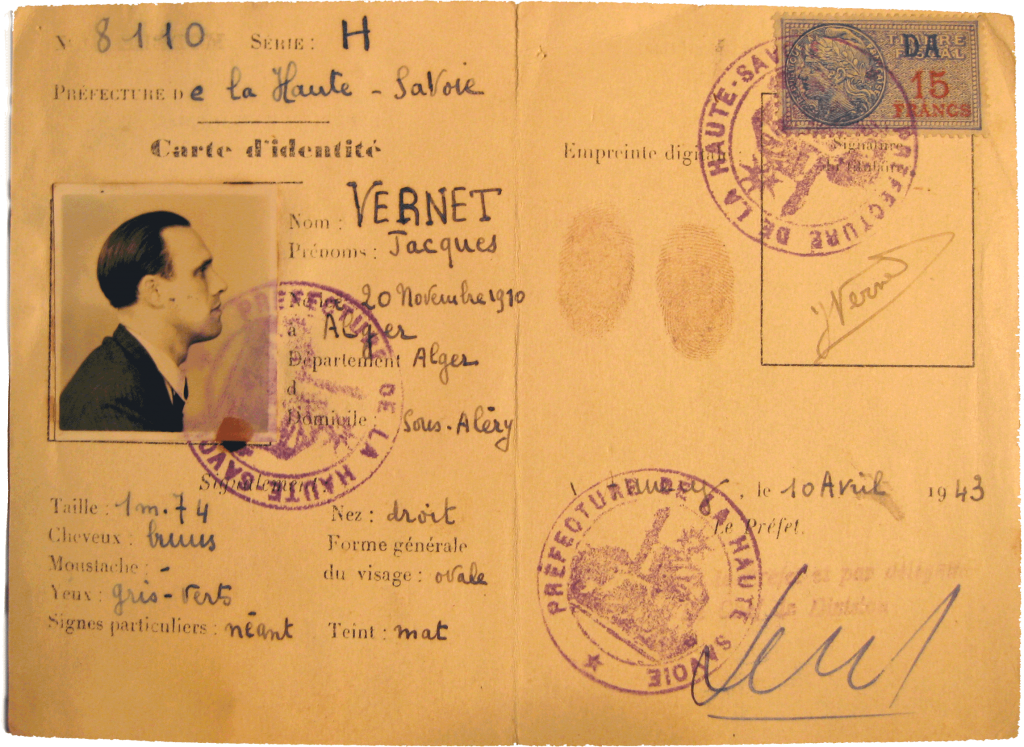
Issued to: Jacques Vernet, born 20 November 1910 in Algiers [Algeria, then a French territory]
Issued by: Prefecture of Haute-Savoie, 10 April 1943
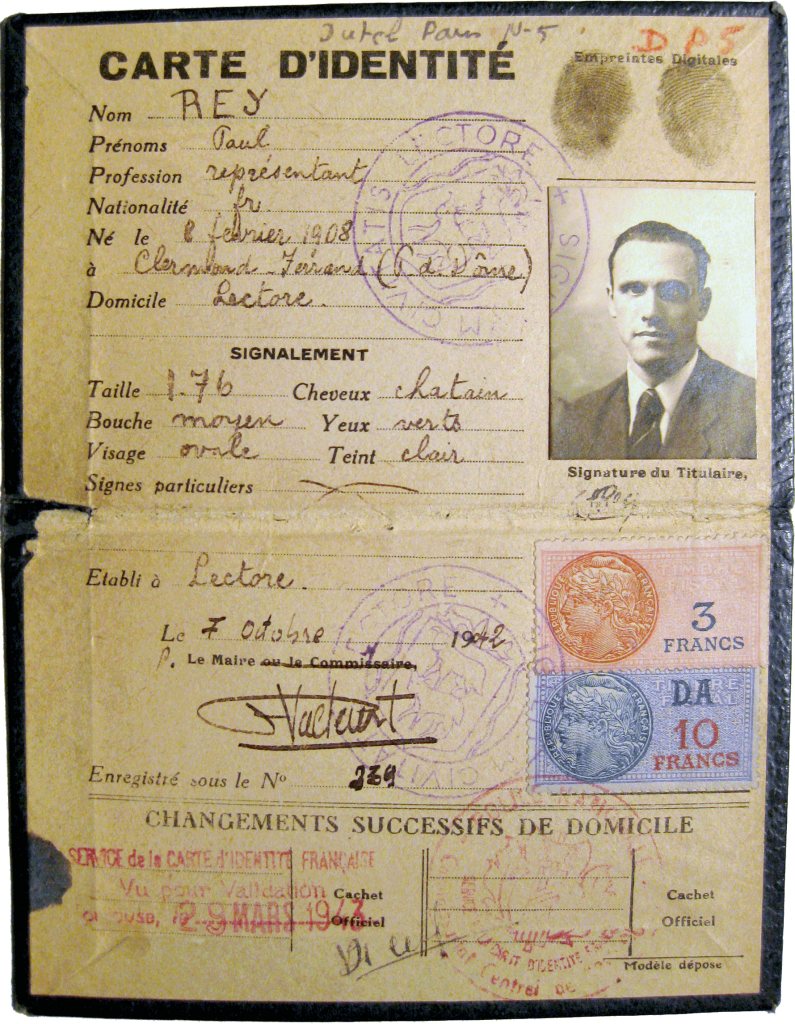
Issued to: Paul Rey, born 8 February 1908 in Clermond-Ferrand [France]
Issued by: Mayor of Lectore, 7 October 1942
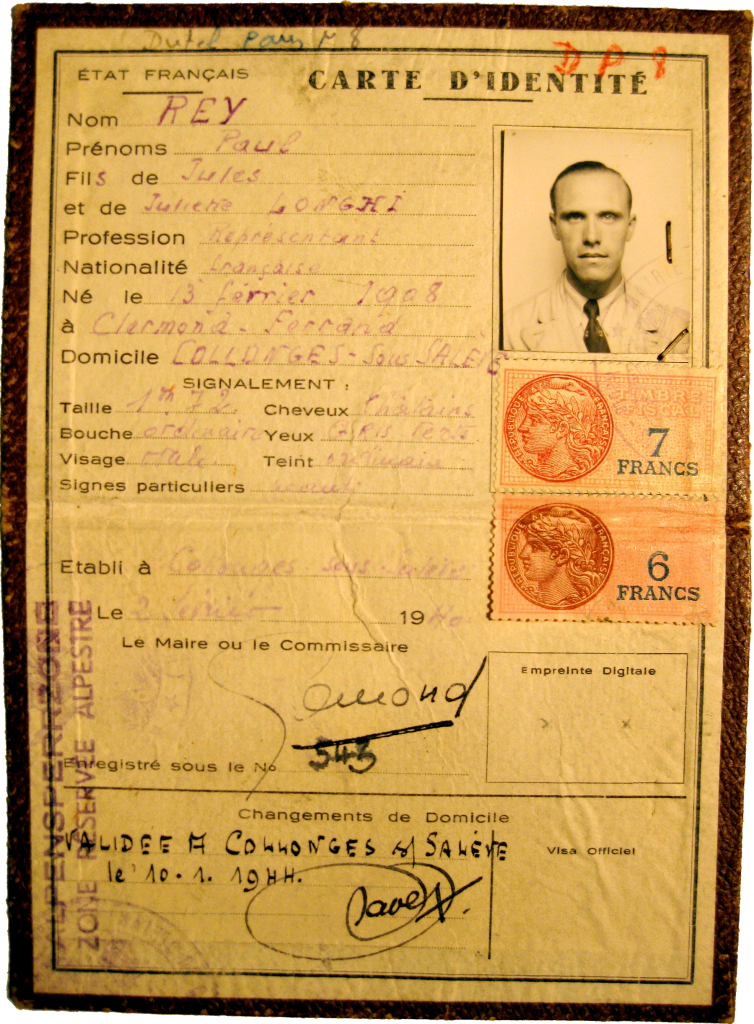
Issued to: Paul Rey, born 13 February 1908 in Clermond-Ferrand [France]
Issued by: Mayor of Collonges-sur-Saleve, Haute-Savoie [France], 2 February 1940
NB: includes authorization to be in the “restricted zone of the Alps”
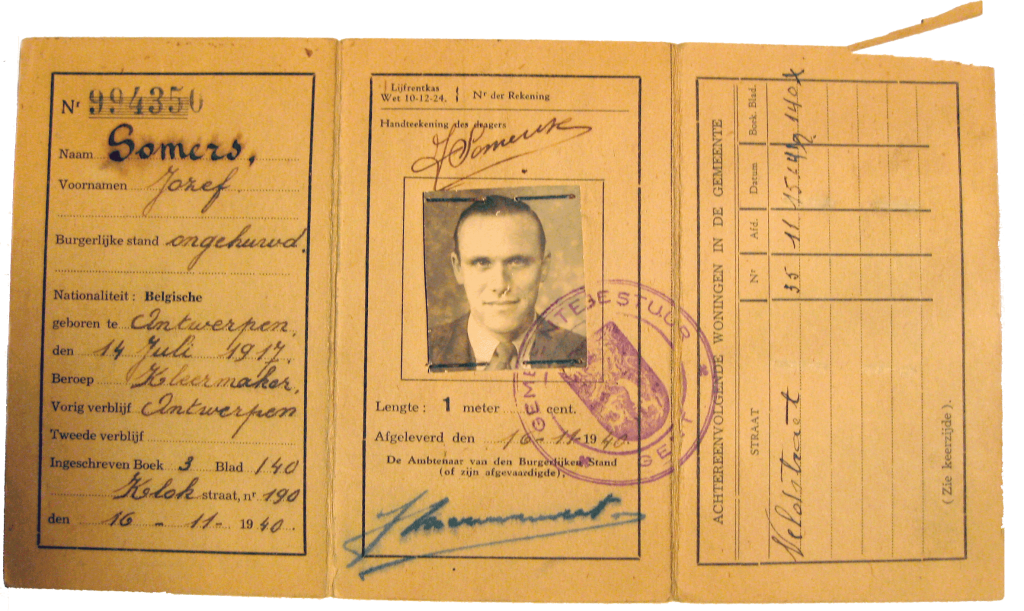
Issued to: Josef Somers, born 14 July 1917 in Antwerp [Belgium]
Issued by: Mayor of Gent [Belgium], 16 November 1940
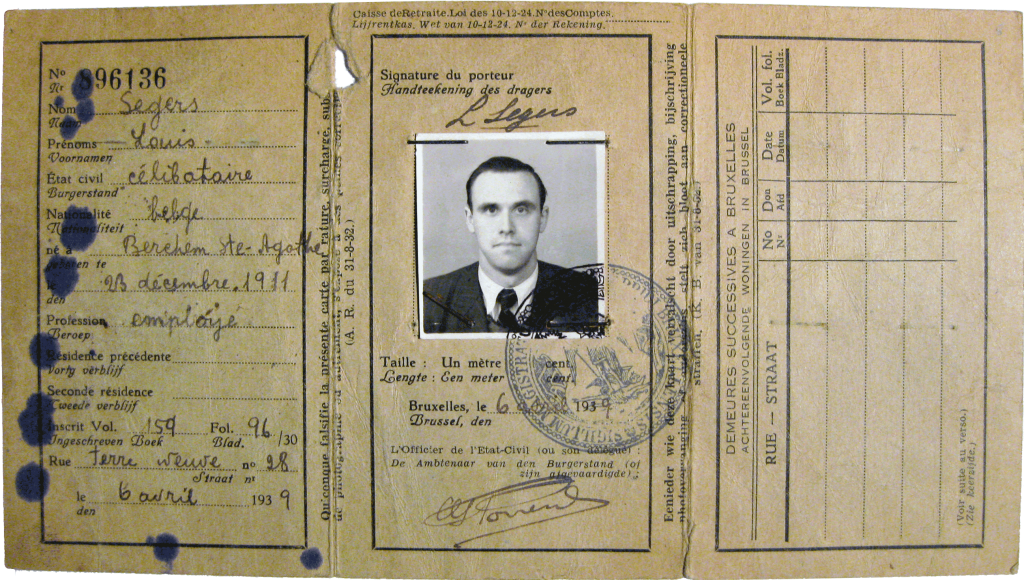
Issued to: Louis Segers, born 23 December 1911 in Berchem Ste-Agathe [Belgium]
Issued by: Mayor of Brussels, 6 April 1939
Yes, indeed, those are all photographs of the same man: John Henry Weidner. These are some of his aliases and some of his false IDs.
- Tags: Belgium, France, John Henry Weidner


Leave a reply